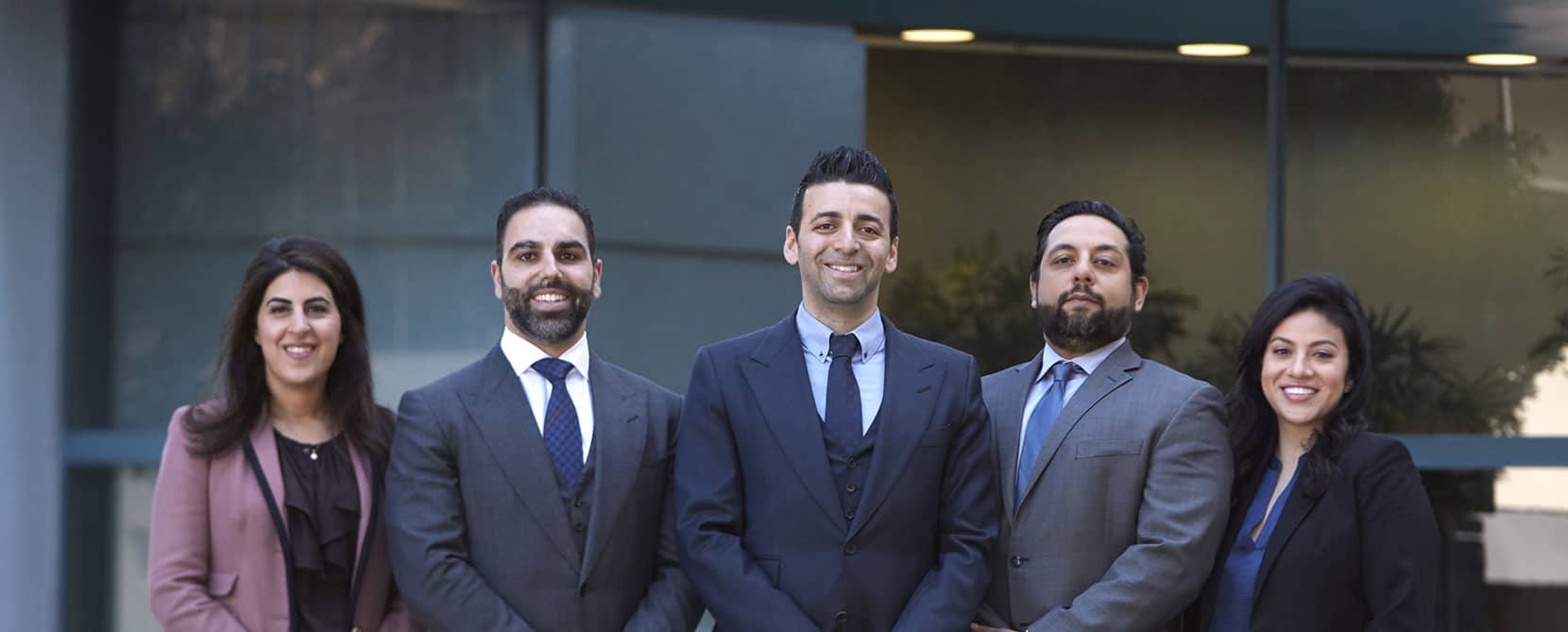 You’ve been injured in a car accident with another driver. You’re confident that the driver is at fault so you file a claim with their insurance company. However, the insurance company doesn’t offer you a dime. Instead, they deny your insurance claim and refuse you pay you for your injuries.
You’ve been injured in a car accident with another driver. You’re confident that the driver is at fault so you file a claim with their insurance company. However, the insurance company doesn’t offer you a dime. Instead, they deny your insurance claim and refuse you pay you for your injuries.
Why do insurance companies deny claims after an accident? Is there anything you can do to make your insurance claim more persuasive? What options do you have if your insurance claim has been denied?
Understanding why, how, and when claims are denied – and what you can do if that happens – can help you to get the money you deserve after a crash.
Reasons Insurance Companies Deny Claims
You have the right to recover compensation if another driver is responsible for your accident. If that driver has car insurance (as is required by state law), filing claim with their insurer is typically the first step you’ll take. However, insurance companies do not approve every claim for benefits that they receive. In fact, insurance companies deny claims quite frequently. Why? There are a number of reasons that could cause your insurance claim to be denied.
Bad Faith
When a driver purchases insurance they have a contract with an insurance company. The insurance company then has an obligation to act in good faith when it receives a request for benefits. This includes third-party claims that are submitted by accident victims. What does this mean for you? An insurance company has to use due diligence and give your claim the attention it deserves. Your claim should, at the very least, be:
- Processed in a timely manner
- Reviewed by an insurance adjuster, and
- Investigated thoroughly.
If, after careful consideration, an insurance company wants to deny your claim, it has to right to do so. However, the company must have a legitimate and reasonable explanation for the denial.
Bad faith practices, while illegal, still happen. Insurance companies have been able to develop techniques that allow them to skirt the law. Some companies will deny a claim without ever looking at its merits. Others will unnecessarily delay processing so that victims become nervous and eager to settle. A few may even shirk the responsibility of investigating the accident, altogether.
Claim Not Filed On Time
Most insurance companies don’t have a hard-and-fast deadline for when you must file a claim after an accident. However, these companies do reserve the right to deny your claim if it is not submitted within a “reasonable” amount of time after an accident. What’s reasonable? That really depends on the company and the other driver’s insurance policy. In some cases, “reasonable” could mean a matter of days. In other cases, filing a claim a few weeks after an accident may be permissible.
No Insurance Coverage Exists
An insurance company will deny your claim if it determines that no coverage existed at the time of the accident. You can be certain that the insurance company will analyze the driver’s policy to make sure that it was valid when you were injured. An insurance policy may be void, and coverage may not exist, if the driver failed to pay his or her premiums on time. If no valid policy exists, the insurer will explain that the policy has lapsed and refuse to honor the claim.
Damage Excluded From Policy
Car insurance companies will only pay you for damage that is covered by the at-fault driver’s insurance policy. Most policies contain exclusions. Exclusions are things that the insurance company can refuse to cover. For example, most insurance companies will refuse to cover damage that is caused by severe weather. So, insurance companies will likely only cover damage that is the direct result of an accident.
Disputed Liability
When you submit your insurance claim you’ll provide a detailed account of the accident and evidence to support your request. Once the insurance company receives your demand letter, it will look into the accident and determine the validity of your claim. If there is any evidence to indicate that their insured driver may not be responsible for the crash, the company can deny your request for benefits.
Named Driver Exclusions
Some insurance policies include “named driver exclusions.” This simply means that the car is fully insured, but that the policy will not cover damage caused by certain drivers. The insurance company can deny your claim if you are injured by a driver who is specifically excluded from coverage in a policy.
How To Strengthen Your Car Insurance Claim
It’s important to submit a detailed and persuasive demand letter when you are seeking compensation from an insurance company. Remember, the company has a legal obligation to act in good faith. This means that they must carefully and honestly consider your request for compensation. The more information and evidence you can provide, the better your chances of securing a fair settlement offer.
Here are some things you can do to strengthen your car insurance claim after an accident:
- Submit photographs of damage to both vehicles, the scene of the accident, and your injuries.
- Include medical records and evaluations to provide a link between the crash and your injuries.
- Identify any citations that were issued to the other driver after the accident.
- Provide copies of police and accident reports.
- Draft a letter to explain how the accident happened and why you believe the other driver is to blame.
- Offer witness statements to verify your claim.
Hiring an attorney to investigate your accident and draft your claim will help you maximize your reward. Your attorney will know how to approach your case and create a strong case for compensation. Call Citywide Law Group to get started on your case today.
Options After Your Insurance Claim is Denied
Your quest for money after an accident shouldn’t end just because an insurance company has denied your claim. You still have options to get the money you deserve.
Appealing the Decision to Deny Your Claim
You have the right to appeal an insurance company’s decision to deny your claim for benefits. An appeal is a request to have a prior decision reversed. Insurance companies in California handle appeals in different ways.
Internal Appeals: Some insurance companies prefer to keep the appeals process in-house. This means that you’ll be directed to submit your appeal to a specific appeals department within the company. This department will independently review your claim and request for an appeal.
Arbitration: Most insurance policies will require appeals to be settled through arbitration. Arbitration is basically like a private trial. You and the insurance company will stand before a neutral third party, known as an arbitrator, and argue your respective cases. You may each have the opportunity to present witnesses and evidence. The arbitrator will consider all relevant evidence, testimony, and information before making a decision. The arbitrator’s decision is final and binding.
It’s always a good idea to have an experienced attorney help you with your appeal. Your attorney will gather the evidence that’s necessary and draft a compelling argument on your behalf. Call the Los Angeles personal injury lawyers at Citywide Law Group for help today.
Filing a Personal Injury Lawsuit
You’re not limited to filing an insurance claim after your accident. You also have the right to file a personal injury lawsuit against the at-fault driver. In fact, you can file a lawsuit to recover compensation from anyone who contributed to your injury. This can include other negligent third parties (e.g., bicyclists, motorcyclists, pedestrians), companies responsible for defective products, and even the local government.
Negligence: Most personal injury lawsuits filed after a car accident are based on negligence. You would argue that the driver’s negligent behavior was the cause of your accident and injury. Negligence means that the driver had and breached a duty of care that was owed to you. Common examples of negligence include speeding, texting or talking on the phone, and driving while intoxicated.
Bad Faith: You can also file a personal injury lawsuit against the insurance company that denied your claim if you believe they acted in bad faith. Bad faith means that the company denied your claim without providing a reasonable explanation for doing so.
Get Help After Your Los Angeles Car Accident
Has an insurance company denied your claim for benefits after an accident in Los Angeles? Contact our experienced personal injury attorneys for immediate assistance. We understand how devastating an accident and injury can be. You shouldn’t have to suffer because an insurance company refuses to offer you the money you deserve. We’ll help you negotiate an appeal with the insurer or pursue compensation through a civil lawsuit.
Call today to schedule your free case assessment. We’ll explain your rights, outline your options, and answer any questions you have. You may have a limited amount of time to act, so do not hesitate to call for help today.
Citywide Law Group
12424 Wilshire Blvd Suite 705
Los Angeles, CA 90025





